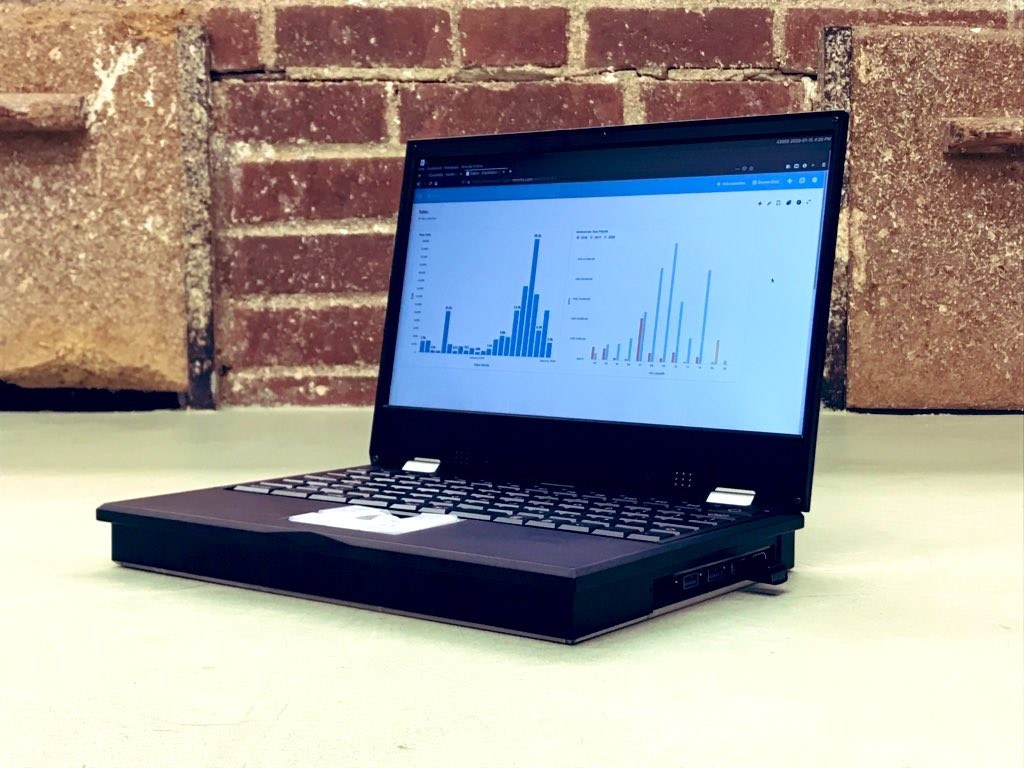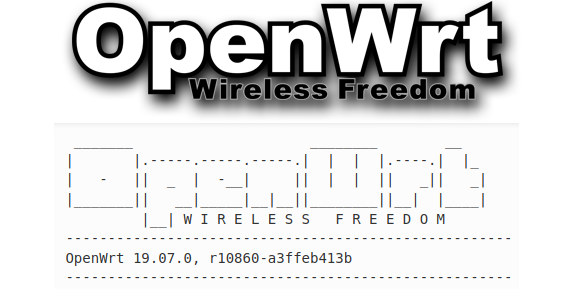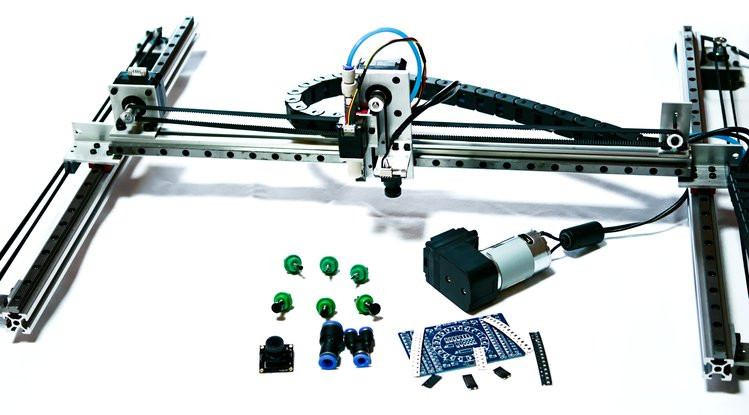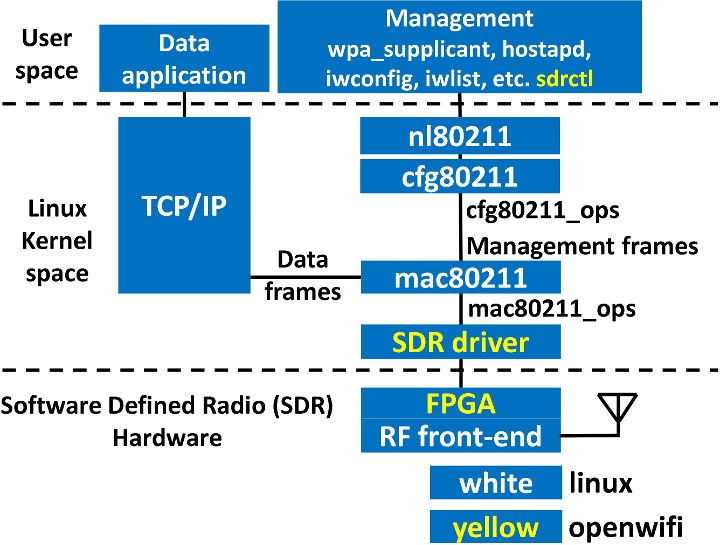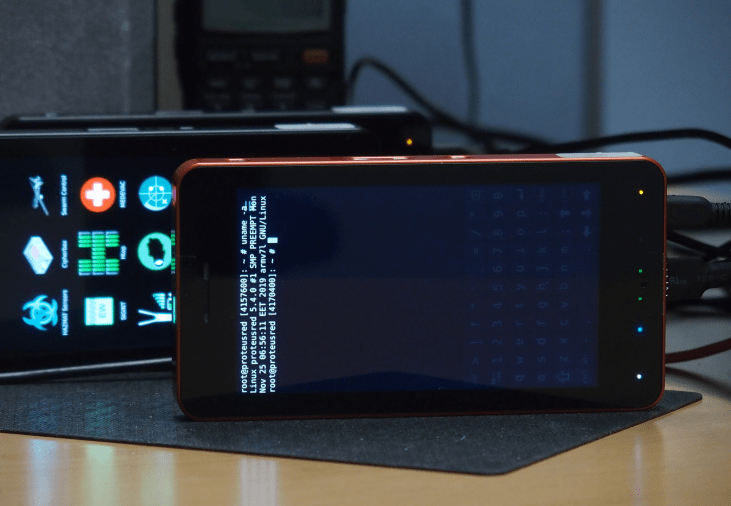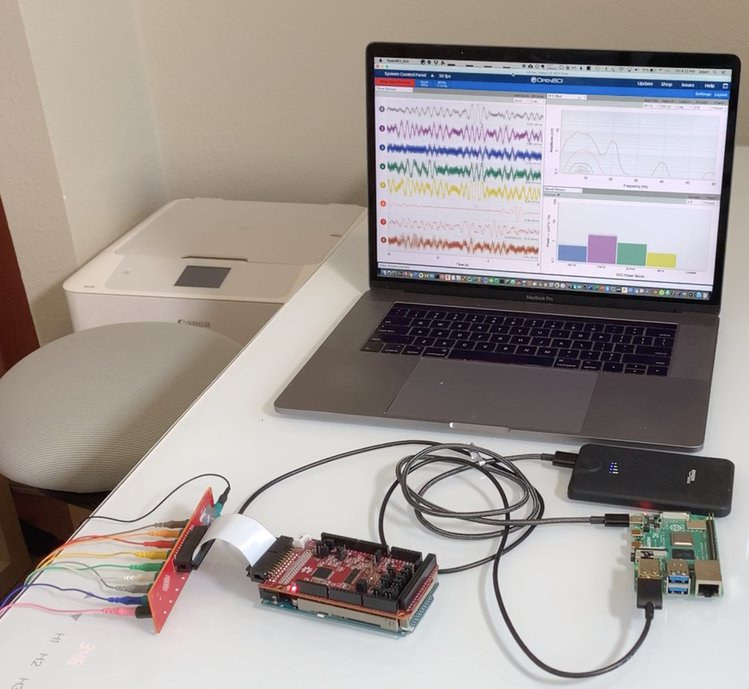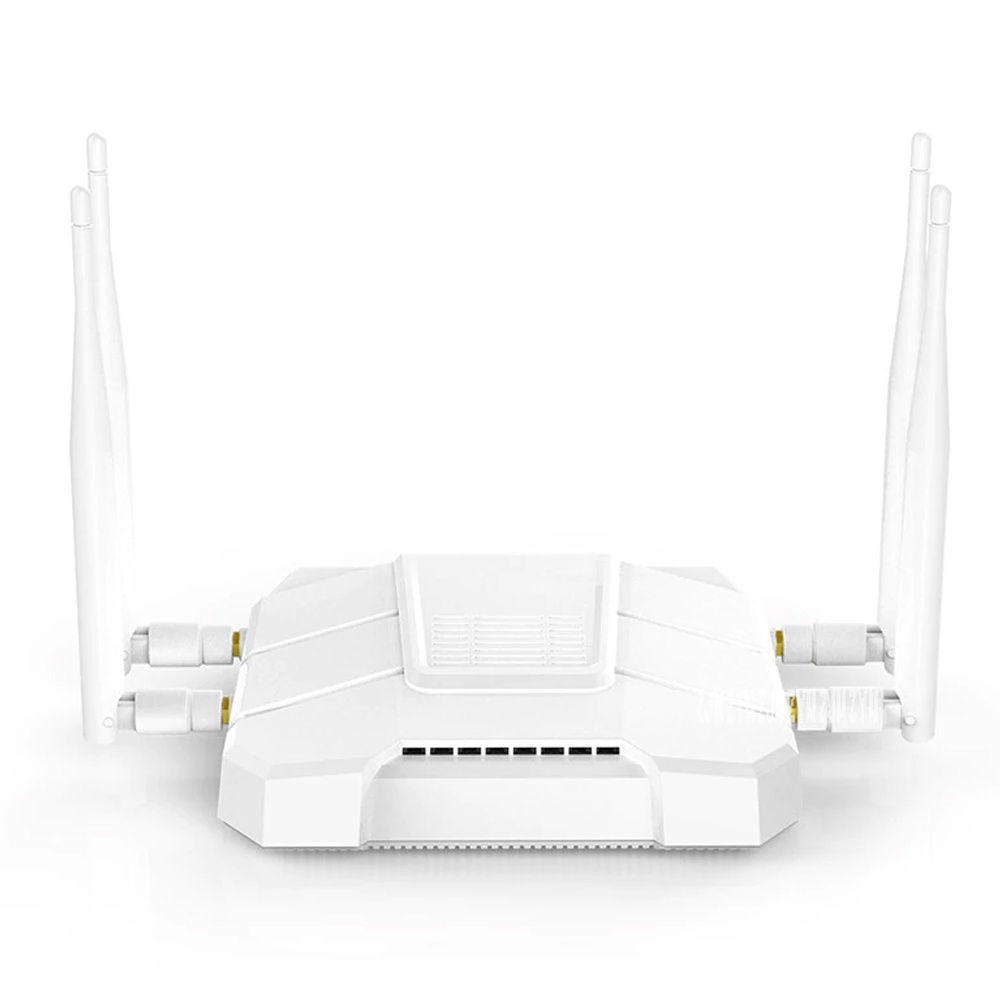We first covered MNT Reform in fall of 2017, when it was a prototype for a DIY and modular laptop powered by NXP i.MX 6QuadPlus processor, and with plans to eventually use i.MX 8 hexa-core processor. Last year they designed several beta units of Reform to get feedback for a dozen users, and have now fully redesigned the laptop based on an NXP i.MX 8M system-on-module with the crowdfunding campaign expected to go live in February on Crowd Supply. MNT Reform 2 specifications: SoM – Boundary Devices Nitrogen8M SOM with SoC – NXP i.MX 8MQuad quad-core Cortex-A53 processor @ 1.5 GHz, 1x Arm Cortex-M4F real-time core Vivante GC7000Lite 3D GPU System Memory – 4GB LPDDR4 Storage – Probably none Networking – Atheros Ethernet MAC chip (AR8035) 200 pin SO-DIMM edge connector exposing USB 3.0, PCIe, MIPI DSI, etc… Dimensions – 67.6mm x 48.4mm Motherboard Storage – SD card slot, M.2 […]
OpenWrt 19.07 Released with WPA3 Security, a Faster LuCI web interface
OpenWrt is a popular Linux operating system targeting embedded devices, usually routers (but not only), and serves as a complete replacement for the vendor-supplied firmware on supported devices. The developers released OpenWrt 19.07 on January 6, to succeed OpenWrt 18.06 the previous stable release. The new version brings various improvements including WPA3 support, client-side rendering of the LuCI web interface for faster rendering or a lower-load on the router, and introduces the ath79 target for MIPS routers with device tree support. While WPA3 WiFi security is part of OpenWrt 19.07, it is not enabled by default because the necessary packages hostapd-openssl (access point), wpa-supplicant-openssl (station support only) and wpad-openssl (AP + station) take a fair amount of space, and won’t fit on devices with 8MB flash or less. Another reason for not enabling WPA3 is that many existing client devices will never support WPA3, and some client devices that support […]
SimplePnP is a Low-Cost, Open Source Hardware Pick-and-Place Machine (Crowdfunding)
If you have a small production run for your board, it may not be cost-effective to ask a factory to manufacture it for you, and assembling the boards entirely by hand will be a time-consuming process. Getting a pick-and-place machine to automate the process would save time, but even the cheaper models on Aliexpress cost several thousand dollars. Citrus CNC tries to address the cost issue with the SimplePnP open source hardware pick-and-place machine that brings the price down to several hundred dollars. SimplePnP key features and specifications: MCU – Microchip Atmega328p running GRBL firmware Motor Drivers – TMC2209 stepper for two-phase stepper motors Word Area – 300 mm (X) x 300 mm (Y) Z Travel – 23 mm Components per Hour – 750 with vision assist Component Size – As small as 0402 (1005 metric) Vacuum Heads – Single vacuum head (base model), or optional dual-head Nozzle System – […]
Some Interesting Talks from FOSDEM 2020 Schedule
We wrote about IoT devroom call for proposals for FOSDEM 2020 a little while ago, and as the free open-source developer meetup is getting closer, FOSDEM 2020 organizers released the schedule. So I’ll look at some of the talks in the relevant devrooms such as the Internet of Things, hardware enablement, Embedded, Mobile and Automotive, as well as RISC-V and others to compose my own little virtual schedule for the 2-day event. Saturday, February 1 10:30 – 10:50 – How lowRISC made its Ibex RISC-V CPU core faster – Using open source tools to improve an open-source core – by Greg Chadwick Ibex implements RISC-V 32-bit I/E MC M-Mode, U-Mode, and PMP. It uses an in-order 2 stage pipe and is best suited for area and power-sensitive rather than high-performance applications. However, there is scope for meaningful performance gains without major impact to power or area. This talk describes work […]
OpenWiFi Open-Source Linux-compatible WiFi Stack Runs on FPGA Hardware
WiFi is omnipresent on most connected hardware, and when it works it’s great, but when there are issues oftentimes they can not be solved because the firmware is a closed-source binary. I understand companies do that either to protect their IP and/or make sure end-users do not break FCC compliance. OpenWiFi project aims to deliver a completely open-source SDR (Software Defined Radio) WiFi implementation compatible with Linux and running on FPGA hardware. OpenWiFi currently supported features: 802.11a/g; 802.11n MCS 0~7; 20MHz Mode tested: Ad-hoc; Station; AP DCF (CSMA/CA) low MAC layer in FPGA Configurable channel access priority parameters: duration of RTS/CTS, CTS-to-self SIFS/DIFS/xIFS/slot-time/CW/etc Time slicing based on MAC address Easy to change bandwidth and frequency: 2MHz for 802.11ah in sub-GHz 10MHz for 802.11p/vehicle in 5.9GHz The developers tested OpenWiFi on Xilinx ZC706 FPGA evaluation kit coupled Analog Devices fmcomms2/fmcomms4 RF board to form an access point, and connected it to […]
ProteusDevice Secure, Open-Source Linux Handheld Features Ethernet Connectivity
ProteusDevice XXLSEC Ltd., the developer of the Privecall-TX device, has developed a near-identical, slightly bigger ProteusDevice, which runs the Linux 5.4 based PriveOS. The ProteusDevice handheld device (“not a mobile phone”) is said to have very tight security and was developed with secure access in mind. Background and Linux Handheld Market The market is seeing more Linux handheld and phones such as the Purism Librem 5, the PinePhone “Braveheart” both of which are already in mass production. There are also other computing options with the handheld Pocket Popcorn Computer, which is much like the PocketChip, but decidedly improved and faster in general, as well as the Solectrix SX Mobile Device Kit which is more of a business option, for smartphone, opensource development with no cellular connectivity, but Gigabit Ethernet and USB-to-UART ports. Some Features and Mystery Production The ProteusDevice is in good company, and has a solid start, but is […]
HackEEG Arduino Shield Reads Signals from Your Brain (EEG), Muscles (EMG), and Heart (EKG)
Biosignals are signals from living beings that can be continually measured & monitored, and some common methods to measure those biosignals include electroencephalogram (EEG) to monitor the electrical activity in your brain, electromyography (EMG) for recording the electrical activity produced by skeletal muscles, and electrocardiogram (EKG or ECG) to measure electrical activity of your heartbeat. Those can be used for brain interfaces which according to a recent Ericsson’s report may become commonplace by 2030 with users just thinking about commands, prosthetic arms, health and disease monitoring, and so on. Starcat has designed the HackEEG shield to experiment with all those three methods using an Arduino board and electrodes. HackEEG features and specifications: TI ADS1299 8-Channel, 24-Bit ADC for biopotential measurements SPI EEPROM for storing configuration data 8x analog-digital conversion (ADC) channels, each with a 24x programmable-gain amplifier (PGA). Up to 4x shields can be stacked on one Arduino Due for […]
FreeMesh WiFi 5 Mesh Network Router Runs OpenWrt
FreeMesh W1326 LTE Router Mesh Network Access FreeMesh has launched an open-source mesh router, the WE1326 LTE FreeMesh Router (included are two nodes) that runs OpenWrt open-source operating system. Open Source and “Hackable” Mesh System FreeMesh enters the mesh market with source code posted on Gitlab, a user-hackable/customizable mesh in other words. FreeMesh uses OpenWrt – the OpenWrt project is a Linux operating system aimed at embedded systems. The focus is on removing the need for a static firmware, where there is only one option for software for the hardware being purchased. The Offerings and Markets The company is targeting the residential market, where most mesh systems are almost double the $150.00 price tag of the FreeMesh. It is reported that there are other ZBT WE826-WD based mesh routers on the market, check out the LinuxGizmos.com article for more information. FreeMesh Specifications FreeMesh Router CPU Dual Core 880MHz MediaTek MT7621AT ROM SPI […]


